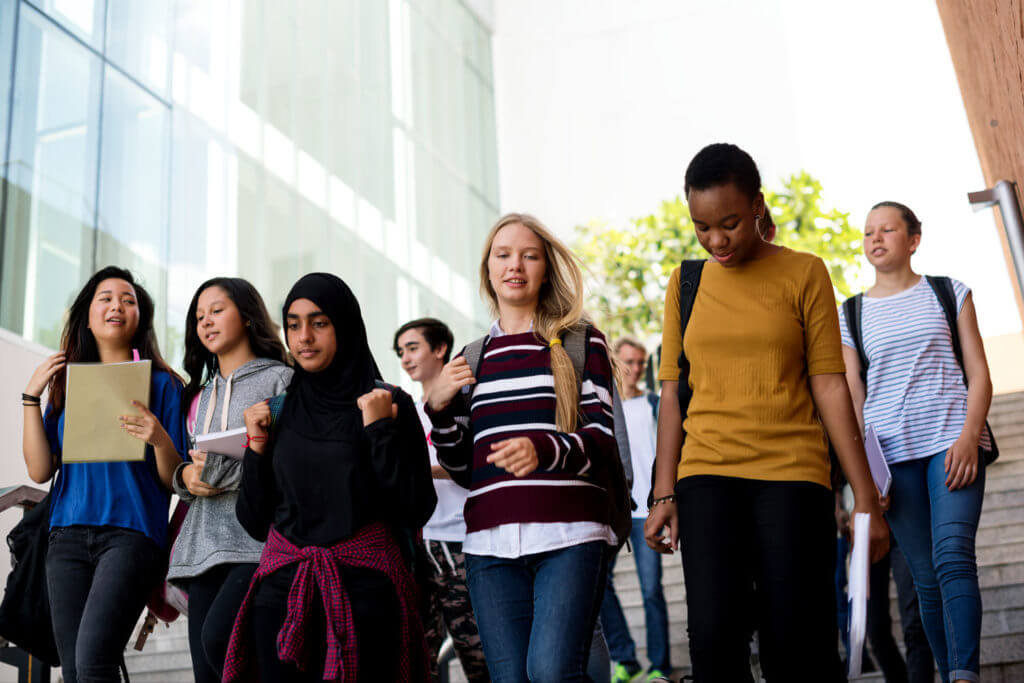In late July 2021, EdSystems submitted public comment on the US Department of Education (USEd) Proposed Secretary’s Supplemental Priorities and Definitions for Discretionary Grants Programs, which will shape discretionary grantmaking by the department in response to the COVID-19 crisis and beyond.
The impact of the COVID-19 pandemic changed the education landscape for the foreseeable future, especially as students continue to make up for lost classroom instruction. However, it also provides an opportunity to redesign how schools approach teaching and learning in ways that both address long-standing gaps in educational opportunity and better prepare students for college and careers. This priority would support recovery and innovation to best serve students and support educators.
The six proposed priority areas are:
- Addressing the impact of COVID-19 on students, educators, and faculty
- Promoting equity in student access to educational resources, opportunities, and welcoming environments
- Supporting a diverse educator workforce and professional growth to strengthen student learning
- Meeting student social, emotional, and academic needs
- Increasing postsecondary education access, affordability, completion, and post-enrollment success
- Strengthening cross-agency coordination and community engagement to advance systemic change
We applaud the department for acknowledging not only the gravity of the pandemic’s impacts on schools in the immediate future but also the opportunity to build from innovative practices. We join USEd in seeking to re-envision how we educate young people and dismantle barriers that stand in the way of success for students of color for far too long. In our public comment, we highlight a number of ways the department could strengthen its proposed priorities and build from existing efforts and successes.
Building Back Better with Strategic Systemic Solutions
The USEd’s proposed priorities focus on systemic solutions and include several strategies we have seen as valuable in the field. For example, early college credit and college and career pathway systems play a major role in how the department envisions learning recovery strategies. We encourage the department to emphasize strategic early college credit as part of broader college and career readiness efforts and to find ways of incentivizing automatic acceleration models that can ensure greater equity of access to early college credit efforts. Further, we encourage the department to ensure college and career pathways systems, in Career and Technical Education and beyond, are thoughtfully aligned from secondary through postsecondary, much as we describe in the Illinois Model Programs of Study and through seeking out currency for College and Career Pathway Endorsements at the postsecondary level. Beyond building from existing systemic efforts, we advocate for state- and community-level support to identify how pandemic-era innovations can be incorporated moving forward in service of student success.
Thinking Outside the Traditional “Box”
Redesigning education should extend beyond adapting classroom learning experiences. We encourage the department to consider how to include work-based learning models as part of the broader systemic effort to improve student experiences and preparation, particularly by providing funding for scaling virtual work-based learning models. Further, we draw lessons from our Middle Skills Pathways in Chicago work to encourage the department to consider addressing the needs of justice-involved individuals and returning adults by incentivizing greater partnership and alignment of non-credit workforce training models into credit-bearing postsecondary pathways.
Seeding Collaboration in Preparing Students for College and Careers Post-COVID-19
Given the systemic nature of these strategies, we share how USEd could position grant funding to support the collaborative structures needed to ensure their success. For example, we encourage the department to consider how funding could provide incentives for postsecondary currency for college and career pathway completion at the secondary level, much as we have cultivated support for students completing education pathways as part of the Scaling Education Pathways in Illinois (SEPI) initiative. By seeding college and career pathways in education, we can help address the teacher shortage considerations the department identifies in its proposed priorities. Further, we discuss at length the valuable role intermediaries play in college and career pathways systems development and implementation. Often, funding opportunities target only the most directly involved institutions in education while failing to consider the essential role intermediaries play in coordinating across education, employers, and community-based organizations. We also encourage the department to consider how to support building community and collaborative capacity for using data in decision-making processes, which we have seen a need for time and time again in our community-level work across Illinois.
Language Matters
Finally, the department proposes a set of definitions in support of their proposed priorities. We applaud USEd for its thoughtful and thorough approach to defining “underserved students,” which will support those on the ground to be explicit about what equitable education systems include and how they serve students from the lived experiences outlined, many of which intersect. The vision spans a range of age groups, identities, and lived experiences in such a way that it also emphasizes the responsibility of policymakers, educators, and other stakeholders in transforming the experiences of these students who have been underserved up until this point.



